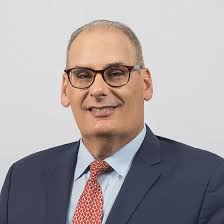Randall is an author and environmental, animal, climate and constitutional law professor at Monmouth University in New Jersey. His books include “What Can Animal Law Learn From Environmental Law?” and “Climate Change and the Voiceless: Protecting Future Generations, Wildlife, and Natural Resources”.
In these Sentientist Conversations (subscribe!), we talk about the two most important questions: “what’s real?” & “what matters?”. Sentientism is “evidence, commitment & compassion for all sentient beings.”
The audio will also be on our Podcast – subscribe on Apple here:
(& on most other platforms).
We discuss:
- Academic silos between animal/environmental/constitutional law and between law, philosophy and advocacy
- The disconnect between environmental and animal ethics and law
- Growing up in a Catholic household, more social than spiritual
- Appreciating religion as a topic of study, not as something to practice
- Exploring Eastern religions and spirituality
- Feeling deeply spiritual without religion
- Compassion as a theme in many religions
- Remaining open-minded about religious ideas
- Agnosticism and atheism
- Awe, wonder and connectedness within a naturalistic worldview and their commonality with supernatural/spiritual emotions
- Freedom of belief, but not freedom to use supernatural beliefs to harm others
- Compassion for all living things & respect for nature, but not realising the link to animal product consumption (even as an environmental law professor) until teaching animal law “How can I have been morally asleep for so long?”
- The brain-washing of animal product consumption: health, normality
- Not knowing any v*gans
- The difficult social process of giving up animal products
- How much easier going v*gan is now
- Is the ethical argument re: animal farming over?
- Anthropocentrism & human supremacy
- Biocentrism & ecocentrism. Does Sentientism go far enough?
- Instrumental vs. intrinsic value
- The “voiceless” needing legal/rights protection include children/unborn humans, wildlife & natural resources
- Christian dominion & stewardship
- Adult humans have unique responsibilities to protect the voiceless because of our unique capabilities
- Stewardship, then rights?
- Environmentalism that excludes many sentient beings (e.g. farmed or wild animals) from moral consideration
- Ecocentrism shouldn’t diminish the protection of sentient beings
- Promoting the protection of non-humans is in human interests too. A win-win
- Ending animal farming & fossil fuel usage as wins for humans, non-human sentients and the environment
- The climate crisis won’t give us time to transition
- More a social than a technical challenge
- Making it easier to do the right thing, then our ethics might be freed to catch up
- The inertia of human comfort zones (e.g. continued SUV sales in the US)
- Covid19 as another stimulus for change & a sign we can change
- Moral blind-spots & the rationalisation of our habits
- “Only being vegetarian” & struggling to grant moral consideration to insects
- The perfect being the enemy of the good & the illusion of “purity”
- Comparing CFC/Ozone with climate change
- Humans are bad at slow-onset, long-term threats, so now climate is an emergency, can we be more optimistic?
- The precautionary principle
- Humans as adaptive creatures
- Neoliberalism, winners & losers (when an earlier response could have delivered fairer outcomes)
- Baby boomers were raised to take and exploit. Modern generations think differently
- Cohort vs. generational change
- The Green New Deal
- Sustainable Development has been lip service. Now becoming more of a legal mandate
- “Living in harmony with what’s left of the planet”
- Courts and the law can play a leadership role, not just follow
- “Should Trees have Standing” by Christopher Stone in the 1970s
- Covid helping us push the One Health concept: considering health of humans, non-humans and the environment together
- Growing awareness of non-human sentience (e.g. PETA campaigns)
- “What a fish knows”, “My Octopus Teacher”
- Protecting non-humans & the environment helps humans. It’s not even a trade-off
- Superiority (race, gender, species…) are linked challenges. We can address them all
- Can we make capitalism more compassionate or do we need something different? Social democracy as a minimum
- The diversity of econ/pol views of Sentientists
- Women leaders as a defence against authoritarian tendencies
- Just transition.
You can find Randall here at Monmouth.
Sentientism is “Evidence, reason & compassion for all sentient beings.” More at sentientism.info. Join our “wall” using this simple form.
Everyone interested, Sentientist or not, is welcome to join our groups. Our main one is here on FaceBook.
Thanks to Graham Bessellieu for his post-prod work on this video. Follow him at @cgbessellieu.

